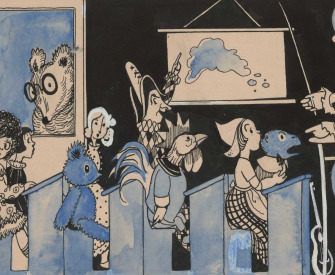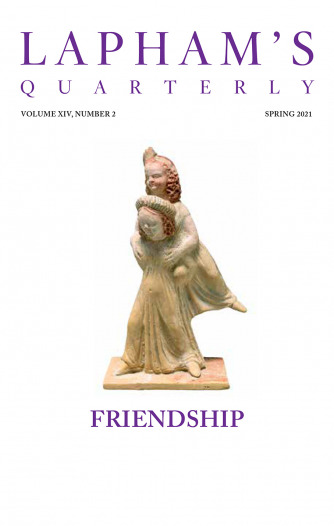My Dear Sir,
I wish I could acquiesce in your impression that a treaty has been made by which every difficulty between the Cherokee and the United States has been set at rest; but I must candidly say that I know of no such treaty. I do not mean to prophesy any similar troubles to those which have, in other cases, followed the failure to adjust disputed points with Indians; the Cherokee act on a principle preventing apprehensions of that nature—their principle is “endure and forbear”; but I must distinctly declare to you that I believe the document signed by unauthorized individuals at Washington will never be regarded by the Cherokee nation as a treaty. The delegation appointed by the people to make a treaty have protested against that instrument “as deceptive to the world and a fraud upon the Cherokee people.”
With your impressions concerning the advantages secured by the subtle instrument in question, you will, no doubt, wonder at this opposition. But it possesses not the advantages you and others imagine; and that is the reason why it has encountered, and ever will encounter, opposition. You suppose we are to be removed through it from a home, by circumstances rendered disagreeable and even untenable, to be secured in a better home, where nothing can disturb or dispossess us. Here is the great mystification. We are not secured in the new home promised to us. We are exposed to precisely the same miseries from which, if this measure is enforced, the United States’ power professes to relieve us, but does so entirely by the exercise of that power against our will.
If we really had the security you and others suppose we have, we would not thus complain. But mark the truth and judge for yourself.
White men obtain their title to property, between one and another, by what is called “fee simple.” I have discovered that many of those who have voted in favor of this pretended treaty have done so under the impression that they were voting lands to us in fee simple—especially as we are to be compelled to pay for those lands the sum of $500,000—having already paid for a portion of them, by exchange, what is equivalent to the full amount of their intrinsic value. But the difference between the right by which the state of Georgia and other states hold lands is a very, very material difference from that for which we Cherokee shall have paid, according to this arrangement, at the smallest estimate, calculating the valuation of the exchange at government prices and adding it to the sum to be paid in money—$7 million! Seven million for lands without a real title! For this sum, I admit, the United States do promise that they will “cause a patent, or grant, to be made and executed” to us for the aforesaid tract of land, but it is always on the proviso “that such land shall revert to the United States if the Indians become extinct or abandon the same.” Now, the use of this very phrase revert is an evidence that the United States does not consider that there is an absolute property given in the soil allotted to the Indians, in payment for their valuable country; the United States retains the absolute property in her own hands, only allowing to the Indians a far inferior right of occupancy to that which they have ever been admitted to possess where they now are, and where they were born. The pretended treaty expressly avows that it is under the law containing the clause above quoted, and other similar laws, that the transfer is made; and the Indian title is to be subject not only to these laws already existing but to such laws as may be made hereafter; and to which laws, present and prospective, the Indian regulations for self-government must be equally subordinate. Now, in addition to the inconveniences and insecurity inevitable from the vagueness of the laws already in operation, those future ones, to which this pretended treaty makes the Indians blindly promise submission, may entirely extinguish not only the right of occupancy but of self-government. For example, suppose it should suit the policy of the United States hereafter to pass a law organizing a territorial government upon the Cherokee lands west? That law necessarily destroys the character of the Cherokee nation as a distinct community; the nation becomes legally extinct; the lands revert to the United States, and the Cherokee people are bound, by assenting to the conditions of the pretended treaty, to acquiesce in this law providing a plausible pretext for their annihilation. And should they demur, what is the result? An article in the pretended treaty expressly stipulates that military posts and military roads may anywhere and at any time be established by the United States in the new country set apart for the Indians. Hence anyone who might complain of any act of the United States as unauthorized by the right construction of the pretended treaty would be as liable to ejectment for the purpose of creating a military post at the malcontent’s abode in the Cherokee country west—as now he actually is, and long has been, under similar circumstances, in the Cherokee part of Georgia—and were vexations to become universal, as they have in Georgia, the region might, in the same manner, be filled with soldiers, and the existence of the Cherokee nation become at once extinguished by laws to which the people will be said themselves to have assented. That there is no disposition ever to interfere thus is attempted to be proved by reference to an article of the pretended treaty excluding intruders and white men; but this very article is clogged with a worse-than-neutralizing condition—a condition pregnant with sources of future disquiet—a condition that it is not to prevent the introduction of useful farmers, mechanics, and teachers, under which denomination some future executive of the United States may find it convenient hereafter to overwhelm the original population and bring about the territorial government, by which the Cherokees will be regarded as legally extinguished, and the country of their exile as reverting to its real proprietor, the United States. Thus will the favorite theory, which has been ascribed to the president, be fully realized. This policy will legislate the Indians off the land!

Anousheh Ansari, Mikhail Tyurin, and Michael E. López-Alegría before the Soyuz TMA-9 launch, Baikonur, Kazakhstan, 2006. Photograph by Bill Ingalls. Bridgeman Images.
That all these things are possible is proved by the present posture of affairs in the region of our birth, our sacred inheritance from our fathers. It is but a few years since the apprehension of scenes like those from which the United States acknowledges her incompetency to protect us, even under the pledge of treaties, would have been regarded as a morbid dream. But a state has already been created on the boundary of the retreat set apart for the exile of the Indians—the state of Arkansas; another state, and an independent one—a new republic, made up of many of the old foes of the Indians—Texas, is rising on another boundary; and who shall say how soon these, and other new bordering states, may become as uneasy from the Indian neighborhood as the old ones are now? It was at one time thought that the United States never could declare she was unable to keep the treaties of former days. Is it less possible that she may hereafter experience the same difficulty in keeping those of the days in which we live? Especially, as in the present instance, she may be called upon not only to defend those treaties from violation by her own citizens but by the people, though of the same origin, belonging to a new, a warlike, an independent republic.
Most truly yours,
From a letter. Born in Turkeytown, Alabama, in 1790 to a Scottish father and a mother who was part Cherokee, Ross was elected to the Cherokee National Council and served as the nation’s principal chief for nearly forty years. “When taught to think and feel as the American citizen, and to have with him a common interest,” he wrote in a petition to the U.S. Congress in 1836, the Cherokee “were to be despoiled by their guardian, to become strangers and wanderers in the land of their fathers…to seek a new home in the wilds of the far West, and that without their consent.”
Back to Issue





